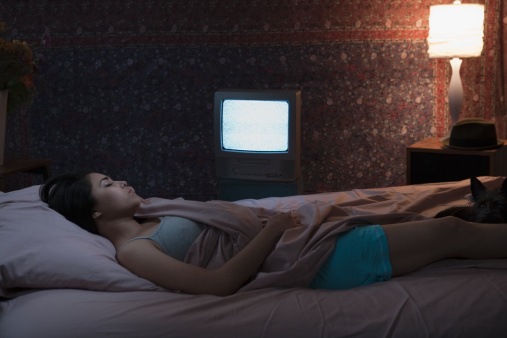
Night-time exposure to artificial light – especially blue light – may increase the risk of colorectal cancer, according to a study published in Epidemiology.
“Using the same methodology as the previous study, we decided to analyze the relationship between exposure to artificial light and colorectal cancer, the third most common type of cancer worldwide after lung and breast cancer,” said Manolis Kogevinas, Scientific Director of the Severo Ochoa Distinction at ISGlobal and coordinator of the new study in a press release.
In this study, researchers procured data on approximately 2,000 adults in Barcelona and Madrid, of whom 660 had colorectal cancer. Any individuals with a history of working night shifts were excluded from analysis. Night-time levels of outdoor artificial light were determined using images from the International Space Station (ISS). The researchers observed that participants with the highest exposures to blue light had a 60% higher risk of developing colorectal cancer than the less exposed population. They did not find any association with full-spectrum light.
Night-Time Exposure to Blue Light – Including Many Tablet and Phone Screens – Associated With Increased Risk of Cancer https://t.co/h8xlPBdby5 Via @SciTechDaily1 #Science #Technology #SciTechDaily pic.twitter.com/ow6N2AEtyG
— NanoTrac Technologies (@nanotrac) July 29, 2020
“Night-time exposure to light, especially blue-spectrum light, can decrease the production and secretion of melatonin, depending on the intensity and wavelength of the light,” explains Kogevinas. “There is growing concern about the effects of light on ecosystems and human health,” commented Kogevinas. “Research on the potential effects of light exposure is still in its infancy, so more work is needed to provide sound, evidence-based recommendations to prevent adverse outcomes.”
https://twitter.com/nresearchnews/status/1271246341881171968
https://twitter.com/IemraNews/status/1288515267690192900







 © 2025 Mashup Media, LLC, a Formedics Property. All Rights Reserved.
© 2025 Mashup Media, LLC, a Formedics Property. All Rights Reserved.